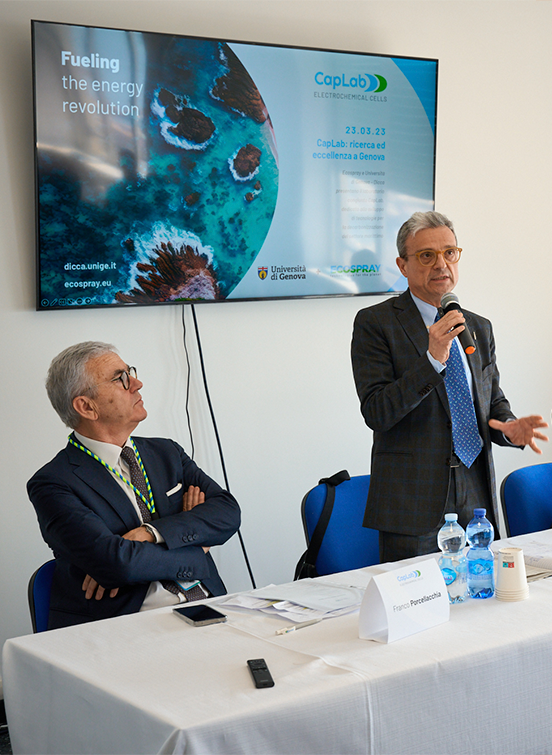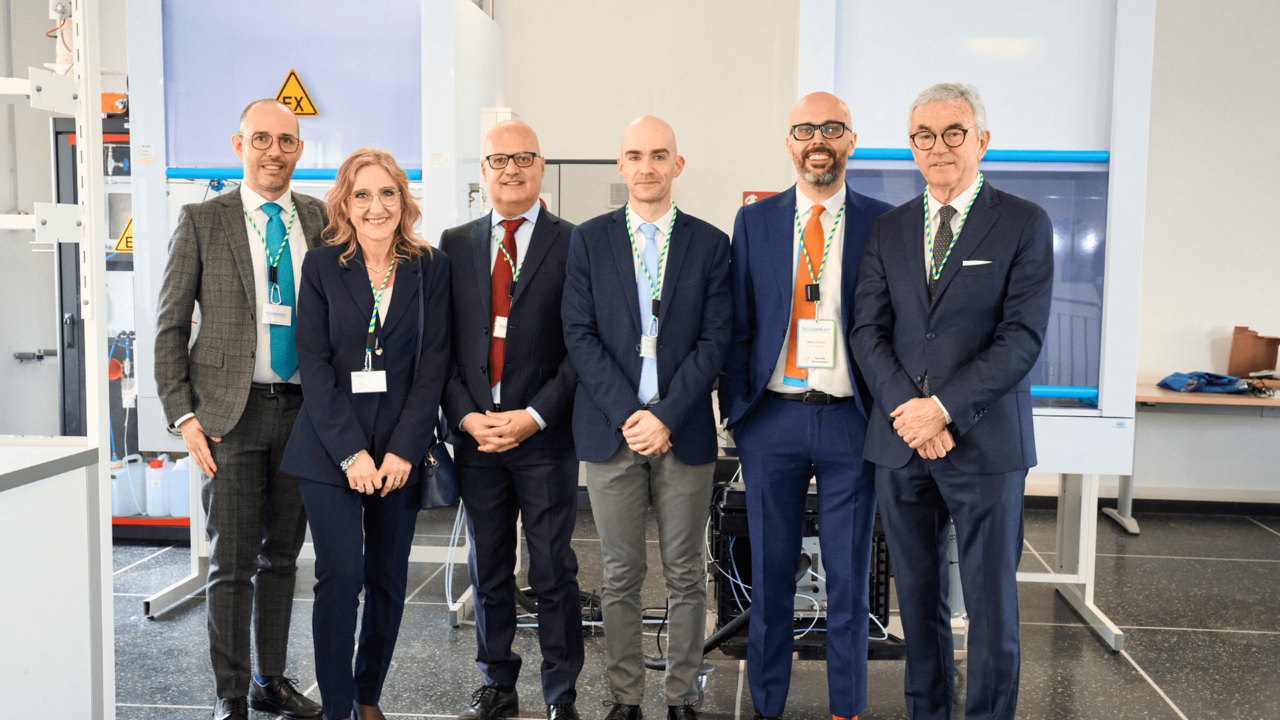Presented to authorities the new laboratory where fuel cell "carbon capture" solutions are studied for application not only in the maritime field.
On March 23rd, Ecospray’s latest milestone in supporting sustainability, Caplab, was presented to the Municipality of Genoa, the highest governing bodies of Liguria Region and other representatives from the business world, marine and industry sectors, as well as the local and national press. Capturing CO₂ and transforming it into clean energy, producing and using hydrogen not only in the naval but also in the land-based fields, integrating it with different renewable sources: these are the main areas of research of Caplab. The laboratory, already operational, is the result of the important synergy between Ecospray and the Department of Civil, Chemical and Environmental Engineering (DICCA) of the University of Genoa.
The attention dedicated to this event was remarkable: the President of the Liguria Region Giovanni Toti and the Mayor of Genoa Marco Bucci took part, demonstrating with their speeches, together with the presence of many other high-profile guests, a strong interest, and a particular sensitivity to environmental sustainability issues. The one in March was only the first in a series of events that will see Caplab take center stage: the laboratory will also be presented to the world of industry and research in the coming weeks.

During the event, Franco Porcellacchia, CEO of Ecospray, kicked off the speeches by emphasizing the link with the city of Genoa, both through Costa Crociere’s partnership and the participation in Carnival group, and through the collaboration with the University.
Mario Marchese, Pro-Rector for PhD, and business relations at the University of Genoa also spoke, bringing greetings from the Dean and the entire university governance and highlighted the importance of this initiative in the relationship between the University, companies, and the territory.
Eng. Archetti, President of Ecospray, and Professor of Applied Physical Chemistry Barbara Bosio then described technically and presented in more details this collaborative project they have been working on since 2020, a project created to explore with application examples the advantages of this CO2 capture technology, both on ships and in industry.
This technology has significant benefits in terms of energy compared to others, but it is not yet fully mature and from this precisely came the need to think about the development of a dedicated laboratory, where the chemistry and geometry of these cells can be optimized to reach a higher industrial maturity.
Closing the speeches, Giuseppe Carino, Vice President Guest Experience & Onboard Sales of Costa Crociere underlined how this project with the University of Genoa is a source of pride, especially considering the partnership between Ecospray and Costa Crociere and the long-standing commitment to decarbonization: the ambition to have ships operating with zero-net greenhouse gas emissions by 2050 creates a strong bond with the Caplab.
The laboratory employs a MCFCs (Molten Carbonate Fuel Cells), which, by enabling the capture of CO₂ and, secondarily, the production of clean energy, can effectively promote the transition from a fossil fuel-based present to a CO₂-free future. An approach considered strategic in the energy transition. The first fuel cell prototypes will be produced in the CapLab in the coming months, and the first tests onboard are planned for 2024.
Not only scientific and technological research, but also experimentation, joint participation in national and international research programs, conducting theses and training internships, establishment of research grants, studies, and teaching activities: the Caplab will be at the center in all these activities.
Last March 23rd was only the starting point, as Ecospray’s President Maurizio Archetti said. He has been particularly proud to be able to present a facility of excellence such as CapLab, a key project in the company’s development strategies, and has pointed out that he expects great results soon in a field that, in fact, still has very little competition.






